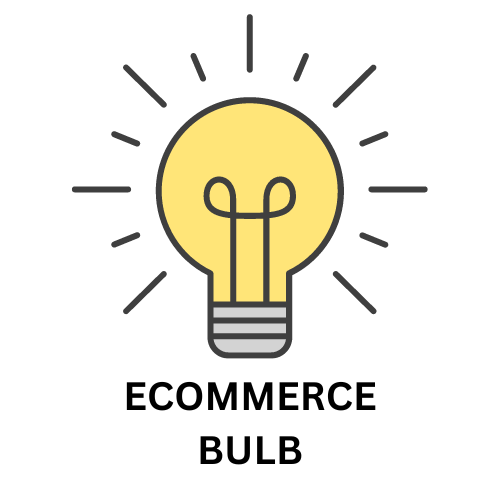You’re an entrepreneur who wants to start a unicorn that sells software? Sounds promising? There are many Software Selling Platforms out there that will help you in your first steps into entrepreneurship!
We’ll help you in this article to know about these platforms, make your decision upon up-to-date and accurate information.
Software Selling Platforms
There are several excellent e-commerce platforms that you can use to sell software on your website. Here are some of the top options:
1. Sellfy: it is a great platform for selling software. It offers a user-friendly interface, built-in marketing tools, and a focus on digital products. Here are some key benefits of using Sellfy for software sales:
- Ease of use: Sellfy is designed to be simple and intuitive, making it easy to set up and manage your software sales.
- Digital product focus: Sellfy is specifically tailored for selling digital content, including software.
- Built-in marketing tools: Sellfy provides features like email marketing and social media integration to help you promote your software.
- Payment processing: Sellfy handles payments securely, making it easy for customers to purchase your software.
- Customer support: Sellfy offers reliable customer support to help you with any issues.
2. Shopify: Known for its user-friendliness and extensive app ecosystem, Shopify is a versatile platform that can be used to sell both physical and digital products. It offers a variety of features, including payment processing, shipping options, and marketing tools.
3. WooCommerce: A popular plugin for WordPress, WooCommerce provides a flexible and customizable platform for selling software. It integrates seamlessly with your WordPress website, making it easy to manage your online store.
4. BigCommerce: BigCommerce is another powerful e-commerce platform that offers a wide range of features, including multi-channel selling, advanced analytics, and marketing tools. It’s particularly well-suited for businesses that need a scalable and customizable solution.
5. Ecwid: Ecwid is a flexible e-commerce platform that can be embedded into any website, including WordPress, Wix, or your own custom-built site. It’s a good option for businesses that need a simple and easy-to-use solution.
6. Selz: Selz is a popular platform for selling digital products, including software. It offers a user-friendly interface and a variety of features, such as payment processing, email marketing, and customer support.
When choosing an e-commerce platform, it’s important to consider factors such as:
- Ease of use: How easy is it to set up and manage your store?
- Features: Does the platform offer the features you need, such as payment processing, shipping options, and marketing tools?
- Cost: What are the subscription fees and transaction costs?
- Scalability: Can the platform handle your business growth?
- Customization: How much control do you have over your store’s design and functionality?
Further Readings about Sellfy: Top 6 Sellfy Reviews

Digital eCommerce Platforms – Why Sellfy is Good for Selling Software?

Sellfy is a strong choice for selling software due to several key advantages:
- Focus on Digital Products: Sellfy is specifically designed for selling digital content, making it well-suited for software distribution.
- User-Friendly Interface: The platform is intuitive and easy to use, even for those without technical expertise.
- Built-in Marketing Tools: Sellfy offers features like email marketing and social media integration to help you promote your software.
- Flexible Pricing: You have control over pricing your software, allowing you to set competitive rates.
- Secure Transactions: Sellfy handles payments securely, ensuring a safe experience for both you and your customers.
- Customer Support: Sellfy provides reliable customer support to assist you with any questions or issues.
- Integration Options: You can integrate Sellfy with other tools and platforms to enhance your workflow.
These features make Sellfy a compelling option for software sellers, providing a user-friendly and effective platform for distributing and promoting your digital products.

Best eCommerce Platform for Digital Products:

When choosing an eCommerce platform for selling digital products, consider factors like ease of use, pricing, integration with payment gateways, and digital product features such as instant downloads and license management. Here are some of the top platforms tailored for digital products:
1. Sellfy
- Pros: Simple interface, specifically designed for digital products, supports print-on-demand and subscriptions.
- Cons: Limited design flexibility compared to other platforms.
- Best for: Small to medium-sized creators focused on selling digital goods without complex setup.
2. Shopify
- Pros: User-friendly, supports digital products, a variety of apps for enhancing digital product management, and secure payment processing.
- Cons: Monthly fees can add up with additional apps.
- Best for: Entrepreneurs who want an easy setup with flexible app integrations for their digital goods.
3. Gumroad
- Pros: Ideal for creators selling digital downloads, pay-what-you-want pricing, and subscription models.
- Cons: Transaction fees can be high (especially on free tiers).
- Best for: Artists, writers, and creators who want an easy-to-use platform for selling digital products.
4. WooCommerce (with WordPress)
- Pros: Highly customizable, open-source, no additional transaction fees beyond your payment gateway.
- Cons: Requires some technical knowledge to set up and maintain.
- Best for: Businesses that need a customizable solution with total control over their eCommerce store.
5. SendOwl
- Pros: Made specifically for digital products, built-in affiliate management, supports subscriptions and drip content.
- Cons: Lacks the extensive design customization of some competitors.
- Best for: Creators looking for a simple, cost-effective way to sell digital products, especially in niches like online courses.
6. BigCommerce
- Pros: No transaction fees, scalable for larger stores, built-in tools for SEO and product management.
- Cons: Can be overwhelming for small stores or individuals due to its complexity.
- Best for: Larger digital product sellers who need scalability and advanced features.
7. Podia
- Pros: All-in-one platform for selling digital downloads, memberships, and courses with no transaction fees.
- Cons: Limited design customization compared to other platforms.
- Best for: Course creators and digital product sellers looking for an all-in-one platform.
8. Teachable
- Pros: Best for selling online courses, membership, and training programs, great for educational products.
- Cons: Higher fees on lower-tier plans and limited eCommerce features for non-course products.
- Best for: Entrepreneurs who primarily sell digital courses and learning material.
9. Kajabi
- Pros: Comprehensive for digital products, especially courses, offers email marketing, landing pages, and analytics all in one.
- Cons: Expensive compared to other platforms.
- Best for: Course creators or businesses that need a high-end all-in-one platform.
Conclusion:
- Best for Creators: Sellfy, Gumroad, or Podia.
- Best for Courses: Teachable or Kajabi.
- Best for Customization: WooCommerce with WordPress.
- Best for Scale: BigCommerce or Shopify.
Your choice should depend on your specific needs, such as ease of use, customizability, or the ability to handle subscriptions or memberships.

Multi Platform Selling Software –

Multi-platform selling software refers to tools and platforms that allow you to sell your products across multiple online marketplaces and channels. These platforms often provide features like:
- Centralized management: Manage orders, inventory, and customer information from a single dashboard.
- Product synchronization: Keep product listings consistent across different platforms.
- Pricing management: Set and manage pricing for each platform.
- Shipping and fulfillment: Handle shipping and fulfillment for orders from different channels.
- Analytics: Track sales performance and customer behavior across multiple platforms.
Examples of multi-platform selling software:
- ChannelAdvisor: A popular platform for selling on multiple marketplaces like Amazon, eBay, and Walmart.
- Linnworks: Another powerful option for multi-channel selling with features like inventory management and order fulfillment.
- Sellbrite: A cloud-based platform that integrates with various e-commerce platforms and marketplaces.
By using multi-platform selling software, you can expand your reach, increase sales, and optimize your e-commerce operations.
Is Multi Platform Selling Software Good?
Multi-platform selling software can be a great asset for businesses that want to expand their reach and increase sales. By using these platforms, you can:
- Sell on multiple marketplaces: Reach a wider audience by selling your products on popular platforms like Amazon, eBay, and Walmart.
- Streamline operations: Manage your inventory, orders, and shipping from a single dashboard.
- Improve efficiency: Automate tasks and reduce manual work.
- Track performance: Monitor sales, customer behavior, and other key metrics across different platforms.
- Optimize pricing: Adjust pricing based on market trends and competition.
However, it’s important to choose a multi-platform selling software that suits your specific needs and budget. Consider factors such as the supported marketplaces, features offered, pricing, and ease of use.

Software Selling Website – Is it worth it or should I stay with Marketplace?

Whether to sell software on your own website or through a marketplace depends on your specific goals and preferences.
Here are some advantages of selling software on your own website:
- Full control: You have complete control over your brand, pricing, and customer experience.
- Higher profit margins: You keep a larger portion of each sale.
- Direct customer relationships: Build stronger relationships with your customers.
However, selling software on your own website also has some challenges:
- Marketing and promotion: You’ll need to invest time and resources into marketing your software.
- Technical expertise: You may need technical skills to set up and manage your website.
- Customer support: You’ll be responsible for providing customer support.
If you’re comfortable with these challenges and want to have full control over your software sales, selling on your own website can be a great option.
On the other hand, marketplaces like Amazon, eBay, and App Store can offer:
- Wider reach: Access to a larger customer base.
- Built-in marketing tools: Utilize marketplace features to promote your software.
- Established trust: Benefit from the trust and credibility of the marketplace.
Ultimately, the best choice for you will depend on your specific goals, target audience, and the resources you have available.



Leave a Reply